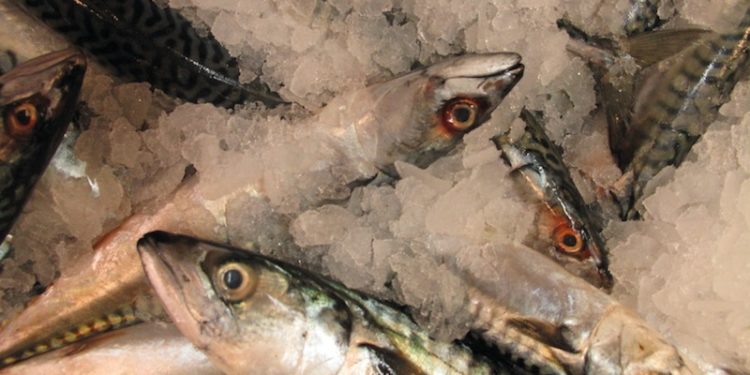The first landings of mackerel have been made to Neskaupstaður in eastern Iceland last week when factory vessel Vilhelm Thorsteinsson docked with its first landing, which included 500 tonnes of seafrozen mackerel.
According to Vilhelm Thorsteinsson’s skipper Guðmundur Jónsson, the season ahead looks promising.
‘The mackerel are later than they were last year, but the sea temperature has been colder than usual for the time of year. We started the trip in international waters where there wasn’t much to be had, and from there to fishing grounds east of the Westmann Islands, which is where we had most of our catch,‘ he said, commenting that fishing started off slowly and then picked up for the fleet that was still fishing there after Vilhelm Thorsteinsson left to steam to Neskaupstaður to unload.
‘This is large, good-quality mackerel. I expect them to be later on the move than last year when the season came to an end in September and by then we had been fishing in international waters for a month,’ he said.
HB Grandi’s pelagic vessels are also on mackerel, and Venus docked in Vopnafjörður with 750 tonnes, while sister vessel Víkingur was on its way back to fishing grounds east of the Westmann Islands.
According to Venus’ skipper Kristján Thorvarðarson, the mackerel are good -sized fish with little feed in them and they are keeping away from the herring.
‘It looks to us as if the fish is heading eastwards along the bank, and there’s certainly some making its way westwards along the coast as well. We’ve also heard that there’s fishing for mackerel in Greenlandic waters, so we can only be optimistic,’ he said, commenting that it’s positive that there are more pelagic boats joining in the fishing.
‘It makes searching much easier,’ he said.
According to Gústaf Baldvinsson of Ice Fresh Seafood which sells production for Síldarvinnslan, among other Icelandic companies, the prospects for sales of mackerel production are positive.
‘The sales prospects look good and we see that there is strong demands from many markets,’ he said, adding that there is concern over herring.
‘Demand fell during the last season and the price dropped. Unfortunately we don’t see an end to this downturn for herring. A factor in this is the Russia embargo, which is a serious issue. The embargo affects practically all of our sales business as Russia was our main market for pelagic production,’ he said.









